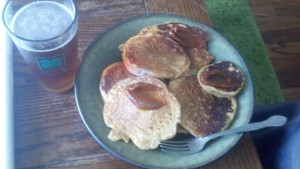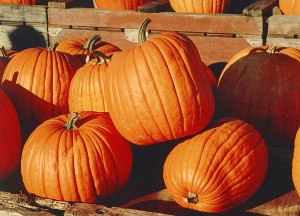The theory that there’s a magic number of meals per day for weight loss, muscle gain, etc. is something doctors, nutritionists and celebrities have varying opinions about. While you’d think we’d take an educated and certified professional’s advice over a celebrity, that sadly isn’t always the case. The media and we as a culture often admire and adore folks in the limelight, and give them perhaps far more credibility than we should. And so many myths becomes “facts” in some warped way.
The advice that 5 small meals per day will lead to weight loss is somewhat both a myth and sometimes a fact. When we go long periods of time without eating, it can be common to feel a dip in energy, mood and focus. Maintaining somewhat consistent blood sugar can prevent dips and spikes in energy. So it makes sense that continuously fueling your body at a slow burn would keep your energy, metabolism, and blood sugar all happy and in check. Here’s the danger with that: it can be easy to overeat and consume far more calories if you are actually eating 5 “meals.” And if you are eating around the clock, your body will be using the fuel in your stomach for energy, not the body fat you are hoping to lose. Remember that insulin plays in a big role in how we use what we put in our mouths – and when.
The best way to eat for weight loss, maintaining weight, and feeling fueled tends to trend with the concept of 3 meals per day, and some snacks throughout the day. Now, snacks of donuts or candy probably aren’t what doctors are recommending. Instead, something nutritionally dense, and in the 100-300 calorie range. Think of a piece of fruit, a container of greek yogurt, sliced veggies with hummus – that kind of thing. Another thing to keep in mind is portion size for the meals. In general, portions are way too big in America. So that means we are consuming more calories at a sitting than necessary but assuming that’s “normal.”
It’s also important to remember that we are all different. While our bodies are all quite similar, we have different variables. Working different hours, sleep, age, activity level. Some of us are naturally grazers. Others need the ritual of sitting down to a “real meal” in order to feel satisfied. While some people like to drink their calories (smoothie, shake, etc.) others feel the need to chew their food. It is common that when hangry, we will reach for the most available and desirable item. This scenario rarely leads to good choices. So preventing that hangry state from occurring can help.
So while there may be no magic number of meals for us across the boards, a balance in macros throughout the day and at each meal can help. And if you are consuming the amount of calories needed, weight gain won’t be an issue. If you are looking to lose weight, stay away from temptations, and keep your macros in check.





